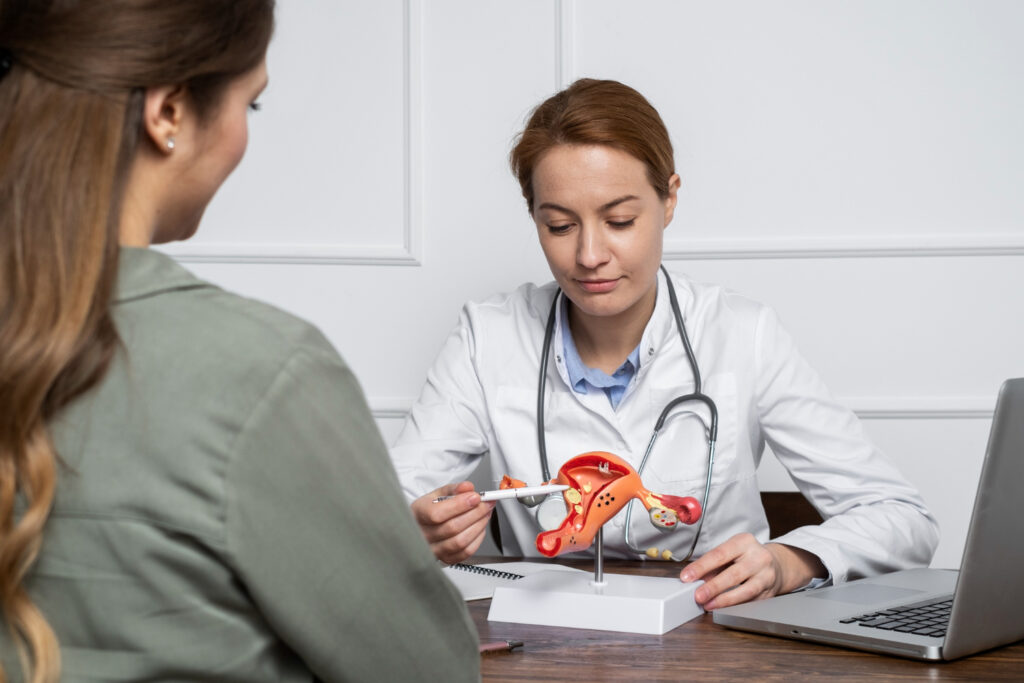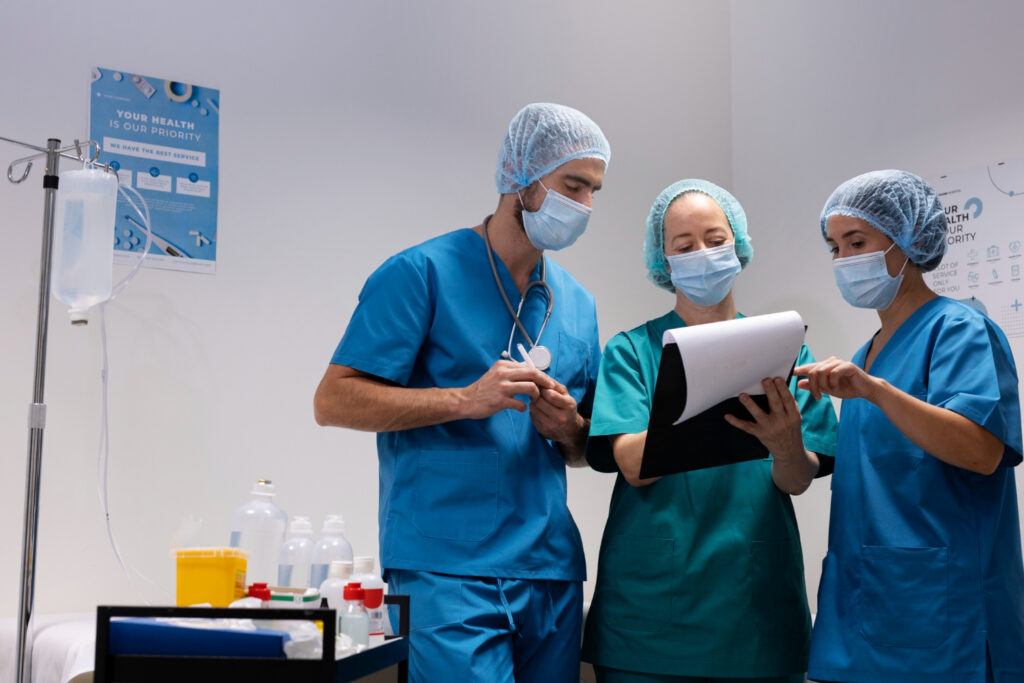
About Surgical Membership Portal
At first glance, a surgical membership portal might resemble a typical digital dashboard—functional, minimal, and perhaps even forgettable. But in recent years, these portals have evolved strikingly, transforming into essential ecosystems that fuel career-long learning, peer collaboration, and surgical innovation. Much like a cockpit enables a pilot to control complex machinery through precision tools, these platforms empower surgeons to navigate the intricacies of modern medicine through interactive modules, live forums, and immersive simulations.
By integrating synthetic simulation technologies, global conference access, and real-time CPD tracking, these portals have significantly reduced the friction between education and application. For early-career professionals, they offer direct pathways to examinations, mentorships, and even scholarships. For seasoned surgeons, the platforms serve as dynamic spaces to contribute expertise, refine methods, and connect with specialists worldwide. This kind of layered functionality is particularly beneficial in a discipline where advancements unfold at a rapid, sometimes dizzying pace.
Rather than passively delivering content, the best portals—such as those from the Society of Laparoscopic & Robotic Surgeons (SLS), the American College of Surgeons (ACS), and the Royal Colleges in the UK and Ireland—create a remarkably effective dialogue between individual practitioners and institutional knowledge. For example, SLS offers medical students and residents free membership access, while also delivering hyper-realistic synthetic organs developed at University College London. These organs, engineered to simulate tumors and compatible with various ablation techniques, provide an exceptionally clear and safe route for skills development outside the operating room.
Meanwhile, the American College of Surgeons has notably improved the user experience by offering personalized dashboards that combine credential tracking, journal access, and interactive tools tailored to different career stages. Through strategic partnerships with military health systems and academic institutions, the ACS has cultivated a highly efficient network of global professionals. These digital touchpoints become even more powerful in moments of crisis—during pandemics, for instance—when centralized, remote learning becomes not just convenient but vital.
Across the Atlantic, the Royal College of Surgeons in Ireland maintains two distinct membership tracks: examination-based and transfer-based, both of which are designed to maintain professional continuity regardless of geography. For mid-career specialists moving between systems, this flexibility is incredibly valuable, ensuring that no accumulated knowledge or qualification is lost in translation.
These surgical portals also act as professional mirrors, reflecting the evolving needs and values of the healthcare workforce. Surgeons today are not only looking to master robotic techniques or pass high-stakes exams—they are seeking community, innovation, and sustainability. Membership portals respond to that by enabling access to world-class symposia, peer-reviewed case studies, and data-backed career resources. It’s not just about staying updated; it’s about remaining competitively inspired.
The global nature of these platforms cannot be overstated. With ACS alone welcoming members from over 130 countries, the exchange of techniques, case reports, and policy insights has grown exponentially. Through this digital scaffolding, surgical excellence becomes less dependent on geography and more a matter of connectivity and intention. Much like a flock of migrating birds responding instinctively to each other’s signals, professionals are staying in formation, progressing together.
What was once just a static member directory has now become a living, breathing interface—exceptionally durable in its framework and highly adaptable to the shifting contours of healthcare. Whether logging in from a university in Lahore, a clinic in Boston, or a theatre in Dublin, surgeons now tap into an extensive grid of opportunity with just a few clicks. This represents not only a technological shift but a philosophical one—where learning is no longer episodic but continuous, and where expertise is democratized across borders.
For a new generation of medical students and trainees, the invitation to join these platforms—for free, in some cases—is more than a membership; it’s a rite of passage. It’s a moment where the scalpel meets the screen, where tradition meets transformation, and where digital tools reinforce human hands. In the coming years, as more surgeons transition into hybrid roles spanning clinical care, education, and research, these platforms will be not just useful—but indispensable.
| Portal Name | Organization | Key Benefits | Target Members | Authentic Link |
|---|---|---|---|---|
| SLS Membership Portal | Society of Laparoscopic & Robotic Surgeons | Free membership for students, synthetic organ simulation, MIS-focused resources | Students, Residents, Fellows, Surgeons | membership.sls.org |
| RCS England Portal | Royal College of Surgeons of England | Professional development, FRCS access, events, tax relief | UK & global surgeons at all levels | rcseng.ac.uk |
| RCSI Members Portal | Royal College of Surgeons in Ireland | Training pathways, FRCSI, Irish surgical community ties | Trainees, Transferring Members, Fellows | rcsi.com |
| ACS Member Portal | American College of Surgeons | Career-long support, insurance, military partnerships, global fellowship | US and International Fellows, Residents, Students | facs.org |
| ABS Surgeon Portal | American Board of Surgery | Credential updates, examination scheduling, surgeon dashboard | Certified surgeons, US-based professionals |
Latest
Pancreatic Surgery and Tertiary Pancreatitis Services

In today’s cutting-edge clinical practice, pancreatic surgery and tertiary pancreatitis services are no longer limited to scholarly textbooks or uncommon hospital units. These are carefully planned lifelines that go beyond simple surgery to treat some of the most complicated gastrointestinal conditions, such as pancreatic cancer, chronic pancreatitis, and diabetes brought on by treatment. These multidisciplinary teams work in unison to ensure that patients not only survive but also return to a life characterized by clarity, relief, and restored health, much like a pit crew adjusting a race car in the middle of a race.
Tertiary pancreatitis services have significantly improved outcomes for patients who were previously thought to be incurable by combining high-volume surgical precision with sophisticated diabetes management and pain relief protocols. The stakes are high and frequently urgent when it comes to severe or chronic pancreatic disorders. Imagine a symphony of gastroenterologists, endocrinologists, surgeons, and dieticians who collaborate to maintain a patient’s recovery at a steady pace. When patients develop Type 3c diabetes, a less well-known type of diabetes brought on by exocrine pancreatic failure that commonly occurs after full or partial pancreatectomy, this ensemble approach is especially helpful.
With good reason, pancreatic surgery has become more and more centralized into high-volume centers in healthcare systems across continents during the last ten years. Significantly lower rates of complications, quicker recovery times, and noticeably higher patient satisfaction ratings have all been observed at these institutions. Through the use of minimally invasive procedures, like robotic-assisted and laparoscopic surgeries, surgeons are now able to operate with remarkable accuracy, reducing trauma and increasing effectiveness. It’s similar to changing an engine without taking the car apart.
A complete pancreatectomy might be considered if tumors, inflammation, or obstruction have significantly impair pancreatic function. The most recent islet cell transplantation techniques offer promising alternatives to the lifelong insulin dependence and digestive difficulties that such procedures previously implied. When successful, these transplanted cells start making insulin on their own, which is a particularly creative way to combine cellular regeneration with surgical treatment.
A major obstacle in the treatment of pancreatitis is pain, both acute and chronic. Nonetheless, clinicians have reported remarkably successful outcomes in restoring quality of life with the implementation of customized pain management protocols, such as nerve blocks, medication regimens, and psychological support. One patient characterized his life after surgery as “finally breathable” following years of crippling pain and numerous ER visits, which is a potent illustration of the human impact behind the technical success.
The experience of having surgery doesn’t stop in the operating room. Intensive monitoring, dietary advice, and endocrine evaluations to balance hormones and enzymes—sometimes recalculated weekly—are all part of the post-operative phase. Continuity of care is preserved through strategic alliances between tertiary hospitals and regional providers, which lessens the strain on patients and their families who might reside far from major cities.
The fact that more organizations now provide patient education as a crucial component of the treatment plan is particularly encouraging. The support system goes far beyond the operating room and includes telehealth check-ins, support groups, and visual guides. This change has greatly improved the accessibility and humaneness of the care process as a whole.
The role of tertiary services is anticipated to expand in the upcoming years as diagnostic capabilities advance and early pancreatic disease detection becomes more accurate. Pancreatic interventions—backed by data, motivated by teamwork, and administered with compassion—are quickly gaining the same legitimacy as heart surgery, which went from experimental to routine.
In the past, receiving a diagnosis of pancreatic cancer or experiencing a flare-up of chronic pancreatitis meant years of pain and uncertainty. Today, however, patients are regaining not only their health but also their lives, thanks to a network of exceptionally creative surgeons, remarkably transparent treatment plans, and incredibly effective multidisciplinary teams.
| Category | Description | Example Procedures | Key Institutions | Reference Link |
|---|---|---|---|---|
| Pancreatic Surgery | Surgical removal of all or part of the pancreas to treat cancer, chronic pancreatitis, or tumors | Whipple procedure, distal pancreatectomy, total pancreatectomy | MedPark Hospital, NYU Langone, Weill Cornell | PubMed Article |
| Tertiary Pancreatitis Services | Specialized care for severe, complicated, or treatment-resistant pancreatitis | Pain clinics, diabetes management, multidisciplinary team planning | Brigham & Women’s, Penn Medicine, RMI | BMJ Open Gastro |
| Type 3c Diabetes Management | Diabetes caused by loss of islet cell function post-surgery or chronic inflammation | Islet cell transplantation, insulin therapy, dietary adjustment | NIH, ACS, Royal College of Surgeons | NIH S |
Royal College of Surgeons Members List

More than just a directory, the Royal College of Surgeons members list is a representation of surgical excellence that has been developed over centuries and is currently constantly changing in real time. Like a constellation of stars directing contemporary medicine, each name on the list reflects commitment, accuracy, and forward-thinking aspirations. It is the meeting point of generations of highly skilled surgeons, clinical innovators, and leaders in healthcare, resulting in a dynamic registry that discreetly charts the history of surgical care around the world in addition to validating credentials.
The College makes it incredibly simple to check if a surgeon is in good standing by providing public access to its membership portals—an incredibly strong and transparent gesture. It gives patients back control over their healthcare choices. It is a tool that strengthens the credentialing foundation for institutions. Additionally, it is the result of years of honing technical skills, passing demanding tests, and supporting multidisciplinary care for the members themselves. Seeing a name inscribed in a university’s Hall of Fame is similar to this, but the stakes are lives rather than legacies.
Advanced nurse practitioners, dental surgeons, allied health professionals, and surgical trainees have all joined the College in recent years. The base’s collective expertise has been significantly enhanced by this inclusive approach. Acknowledging the intricacy of team-based surgical care, the College has evolved from a distinguished gatekeeper to a highly adaptable support structure. Comparable to transforming a traditional orchestra into a multi-genre ensemble, it is dynamic, varied, and incredibly successful at meeting the needs of contemporary medicine.
The members list‘s profiles show how progressive surgeons are changing the narratives surrounding healthcare from within. Reputable pediatric orthopaedics expert Associate Professor Deborah Eastwood places a strong emphasis on equity and sustainability in surgical systems. Her dedication to community service and mentoring reflects the College’s changing culture. In a similar vein, Tim Lane’s incisive criticism of antiquated customs has sparked important conversations about inclusivity and realignment with grassroots practitioners; his determination to make the College feel relevant to all surgeons, not just its most esteemed, is remarkably relevant.
The willingness to question conventions, support training, and negotiate the complex landscape of healthcare delivery is what unites these members, not just surgical skill. Rising leaders like Francisca Ferreira and Clara Vella show that they are pushing boundaries with clarity, intent, and authenticity rather than waiting for approval. In addition to actively participating in the policies, evaluations, and diversity initiatives that will shape surgical training going forward in the UK and abroad, they have been forming their own careers.
This database is significant when it comes to patient care. With a few keystrokes, patients thinking about elective or private surgery can verify credentials, making sure their surgeon is not only licensed but also associated with an organization that values ethical excellence and lifelong learning. Many patients used these online directories to verify care providers during the pandemic, when healthcare systems were overburdened. In a system where making well-informed decisions isn’t always simple, it was a surprisingly inexpensive safeguard.
Deeper integration with emerging technologies is probably where the members list is headed. A living ecosystem of accountability that changes in real time to reflect a member’s current certifications, audit findings, and patient outcomes could be established by the Royal College by incorporating blockchain technology for identity validation or artificial intelligence (AI) for tracking ongoing professional development. Such innovation has the potential to establish the members list as a reliable worldwide standard for surgical excellence in the years to come.
In the end, the list of members of the Royal College of Surgeons is a tribute rather than merely a tool. It shows who we look up to as thought leaders, who we trust with the most delicate procedures, and who we depend on to help mold the care of the future. Finding your name on that list is more than just a source of pride for a young surgeon. It’s an indication that you’ve entered a tradition of healers, scientists, mentors, and reformers who are all bound together by a shared goal and a commitment to acting not just with expertise but also with morality.
| Name of College | Country | Key Focus Areas | Membership Levels | Official Website |
|---|---|---|---|---|
| Royal College of Surgeons of England (RCS England) | United Kingdom | Surgical education, exams, research, global surgery, public outreach | Affiliate, Member (MRCS), Fellow (FRCS), Associate, Student | rcseng.ac.uk |
| Royal College of Surgeons of Edinburgh (RCSEd) | United Kingdom (Scotland) | Training across surgery, dental, podiatry, and prehospital care | Affiliate, Member (MRCSEd), Fellow (FRCSEd), Honorary, International | rcsed.ac.uk |
| Royal College of Physicians and Surgeons of Glasgow (RCPSG) | United Kingdom (Scotland) | Multidisciplinary: surgery, dental surgery, travel medicine, and podiatric medicine | Member, Fellow, Associate, International Affiliate | rcpsg.ac.uk |
| Royal College of Surgeons in Ireland (RCSI) | Ireland | Surgery, healthcare leadership, education, global training, research | Student, Member (MRCSI), Fellow (FRCSI), Honorary | rcsi.com |
| Royal College of Physicians and Surgeons of Canada | Canada | Certification, research, specialist recognition, CPD | Resident, Fellow, Retired, International Affiliate |
Royal College of Surgeons

The Royal College of Surgeons is a remarkably symbolic organization that has literally paved the way for modern medicine throughout the lengthy history of surgery. It has continuously guided the profession toward excellence, rigor, and reinvention, much like a compass. Founded as a guild in the 14th century but formally chartered in 1800, its longevity is not due to inertia but rather to deliberate evolution, with each generation of Fellows actively enhancing and challenging knowledge rather than merely preserving it.
Through the creation of global fellowships, digital learning hubs, and specialized exams, the College has evolved into a highly adaptable center for professional growth. It is now a high-performance engine that drives clinical innovation, education, and policy, not just a credentialing body. Its members, who are selected from the best medical minds, work together with amazing synchronicity to improve surgical science, patient care, and systemic resilience, much like a swarm of skilled bees.
Along with updating its facilities, RCS England has refocused its mission in recent years. By incorporating surgical simulation labs, AI-enhanced e-learning, and training modules with a sustainability focus, the College has become especially creative in tackling today’s healthcare issues. Surgeons are being prepared not only for the present but also for the future. This isn’t just a vague pledge; it’s supported by observable results, such as improved webinars for job planning and evidence-based materials that are incredibly timely, clear, and practical.
Consider its recently digitized Hunterian Museum. Previously a peaceful haven for specimens, it now offers an engaging, interactive tour of surgical anatomy and ethics. Future surgeons will have to have difficult discussions about consent and legacy when they see the skeleton of Charles Byrne, the so-called Irish Giant, up close. These serve as more than just historical displays; they are moral hotspots that inspire contemporary contemplation of the obligations associated with surgical authority.
Its current structure is centered on bringing together different professions, platforms, and viewpoints, despite its history being filled with barbers who became surgeons and the separation from doctors. Its incredibly useful online resources kept entire hospital departments informed and connected throughout the pandemic. Additionally, it has introduced open-access guidelines, podcast series like The Theatre, and mentoring programs in the years since, all of which have significantly increased the clarity of surgical planning and patient communication.
Its emphasis on inclusivity may be its most motivating feature. Diversifying surgical leadership has been advocated by surgeons such as Professor Deborah Eastwood and Clara Vella, while Tim Lane’s grassroots campaign emphasizes the necessity of democratizing participation at all levels. These are not token gestures; rather, they are meticulous attempts to promote equity, driven by the belief that quality can only be sustained when it is available.
The College plans to increase its funding for regenerative research, global outreach, and hybrid education in the upcoming years. It is creating a surgical learning blueprint that is both incredibly adaptable and profoundly compassionate by utilizing new tools and collaborative networks. In the future, the College will not only become a British symbol but also a global hub for surgical thought leadership.
Even though the Royal College of Surgeons was founded in the center of London, its pulse can now be heard on other continents. Fundamentally, it is an organization founded on purpose rather than knowledge, and this purpose seems particularly important in a time when the healthcare industry is more in need than ever of steady hands, critical thinkers, and caring leaders.
| Name | Headquarters | Established | Membership | Website |
|---|---|---|---|---|
| Royal College of Surgeons of England (RCS England) | London, UK | 1800 | ~28,000 | rcseng.ac.uk |
| Royal College of Surgeons of Edinburgh (RCSEd) | Edinburgh, UK | 1505 | Global | rcsed.ac.uk |
| Royal College of Surgeons in Ireland (RCSI) | Dublin, Ireland | 1784 | Global | rcsi.com |
| Royal College of Physicians and Surgeons of Glasgow (RCPSG) | Glasgow, UK | 1599 | Multidisciplinary | rcpsg.ac.uk |
Edinburgh Membership Fees

Beyond simply providing access, Edinburgh’s memberships—which span academia, health, history, and sport—promise identity, community, and advancement. Whether you’re wearing sneakers or scrubs, the cost is frequently determined more by the return on investment in terms of well-being, prestige, or quality of life than by the amount of money. It’s a city where £799 could solidify your lifelong legacy as a fellow in a 500-year-old surgical institution, and £24 could unleash your inner athlete. These membership structures, which are remarkably successful at accommodating different lifestyles, capture the essence of a city founded on ambition and inclusivity.
Edinburgh’s institutions have established ecosystems that significantly increase accessibility while upholding remarkably high standards by incorporating tiered structures and significant benefits. For instance, consider the Royal College of Surgeons of Edinburgh (RCSEd). There are no early barriers for aspiring professionals because it is completely free to sign up as a student or affiliate. Global networking, prestigious accreditation, academic resources, and leadership opportunities are just a few of the many advantages. The annual fees paid by fellows outside of the UK vary, but every penny goes towards innovation and education, promoting surgical excellence around the world and bolstering strong evaluation systems.
When compared to national averages, Edinburgh Leisure’s prices are especially reasonable when considering health and leisure. The Full Fitness pass, which costs £59.99 a month, provides access to more than 750 weekly classes, gyms, and swimming pools. In exchange for endless endorphins, that is almost the price of a single fine dining meal in the city. The price of the gym-only or swim-only options is £41.99, which is remarkably comparable to boutique single-discipline gyms elsewhere but offers a much wider selection. The system’s extreme versatility is demonstrated by the fact that even specialized needs, such as HYROX training, indoor climbing, or soft play for kids, are covered under different plans.
Almost all providers offer a distinct, specially priced tier for students. Less than £9 a month, the £105 annual PEAK pass at the University of Edinburgh covers access to the gym, swim, and classes all year long. That falls to a mere £82 for users who are not in high demand. A 30-day pass costs £24 and is ideal for people who require temporary flexibility. Here, especially creative membership models serve not only students but also community members, university employees, and even recent graduates, making sure that no one is denied the opportunity to maintain their physical fitness or social engagement.
Professional organizations such as RCPE and RCSEd demonstrate a deep comprehension of work-life dynamics by utilizing progressive discounts. 50% of fees are waived for new parents while they are on maternity or paternity leave. Part-time members are eligible for a 25% discount. A one-time Lifetime Fellowship fee of £799 in the UK or £475 overseas is an option available to retired fellows, which drastically lowers long-term financial obligations while preserving full access to benefits.
The most notable aspect of Edinburgh’s fee structures is probably how infrequently they feel transactional. They have a purpose and frequently represent common ideals. Gaining a place at a prestigious table without compromising affordability is the goal for early-career medical professionals. For those who are interested in fitness, it’s about turning personal health into a long-term habit rather than a luxury. In both situations, Edinburgh institutions are fostering aspiration rather than just selling access.
These memberships provide flexibility rather than imposing strict pricing structures on residents. The value proposition is very clear because there are no contracts, no hidden costs, and noticeably better support systems. These adaptable choices are silent facilitators of personal development for people juggling job changes, school life, or changing wellness objectives.
Lorem ipsum dolor sit amet, consectetur adipiscing elit. Ut elit tellus, luctus nec ullamcorper mattis, pulvinar dapibus leo.
| Organisation | Membership Type | Cost (2025) | Benefits | Notes |
|---|---|---|---|---|
| RCSEd (Royal College of Surgeons of Edinburgh) | Affiliate, Member, Fellow | £0 – varies by career stage | Prestigious global accreditation, training, career support | Free for students and refugees; annual fees fund education and exams |
| Royal College of Physicians of Edinburgh (RCPE) | Student, Fellow, Retired | Free – £799 (Lifetime) | Education, journal access, professional networking | Discounts for maternity, part-time roles, and retirees |
| University of Edinburgh Sport & Exercise | Student, Staff, Community | £24 – £153 (per 30–90 days) | Gym, swim, classes, climbing, hybrid access | Immediate start on payment; multiple tiered memberships |
| Edinburgh Leisure | Full Fitness, Gym, Swim, Class, Evolve, Golf | £19.99 – £81.99/month | 750+ classes/week, pools, saunas, gym access, no hidden fees | Offers junior, corporate, HYROX, and soft play options as well |
| Historic Scotland | Heritage & Attractions | Varies (annual) | Free entry to 400+ events and attractions across Scotland | Particularly beneficial for frequent explorers and history lovers |
| Edinburgh Sports Club | Squash, Tennis, Table Tennis, Racketball | Price on request | High-performance sports facilities and elite club environment | Social membership available; premium experience |
| David Lloyd (Corstorphine) | Diamond, Platinum, Plus | £104 – £194/month | Luxury health club with spa, racquets, family services | One of the most premium membership tiers in Edinburgh |
| Royal Scots Club | Annual & Lifetime | Discounted on bookings | Clubhouse privileges, accommodation discounts | 40% off flexible rates when booking through the club |

